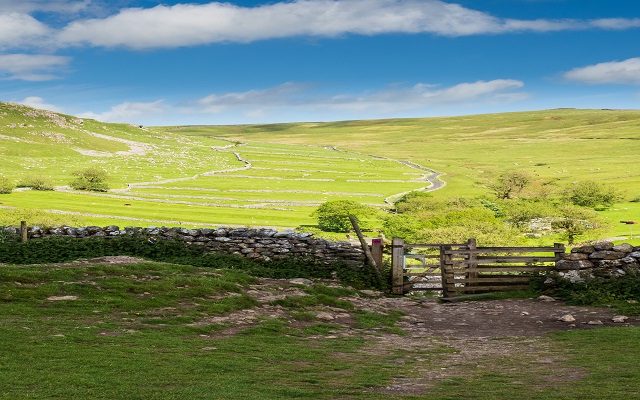Land Business Update | Week Commencing 6th December
Welcome to our update on key land management, farming, planning and energy issues.
FARMING
DEFRA publishes more details of SFI 2022 including payment rates
Farmers in England currently claiming BPS will be able to apply for SFI 2022, regardless of whether they are already in an environmental scheme and provided that the management activities under both schemes are complimentary. Annual payment rates for the four standards that will be available are:
- Arable and horticultural soils – payments of £22/ha for introductory level and £44/ha for intermediate level.
- Improved grassland soils – payments of £28/ha for introductory level and £58/ha for intermediate level.
- Moorland and rough grazing – fixed payment of £148 per agreement per year, plus additional £6.45/ha for introductory level.
- Annual Health and Welfare Review – funding for annual vet visit, varying based on livestock type (Pigs – £775; Sheep – £488; Cattle where BVD testing is required – £483; Cattle where BVD testing is not required – £336).
The Wildlife Trust, National Trust and RSPB have expressed their disappointment at the SFI 2022, saying that it will pay land managers for basic best practice actions rather than improving the environment.
Read our article on 2022 Sustainable Farming Incentive options on our Rural Hub.
Resumption of UK lamb exports to the US from January 2022
AHDB estimates the market to be worth £37m over the first five years of trade, and it could boost Welsh farming by £20m.
ENERGY
Rural Electric Mobility Enabler
EDF, Devon County Council and other partners have been awarded £335,000 to model data from the National Grid to plot where public EV charging points would be most beneficial in rural areas. Where installing charging points would prove challenging, the project will identify workaround solutions. This interesting project has been funded by the UK’s innovation and research body, Innovate UK, and will publish its findings soon after March 2022.
https://www.edfenergy.com/for-home/energywise/new-solutions-electric-cars-rural-areas
ENVIRONMENT
A water roadmap for the food and drink sector
50 food and farming organisations, including Tesco, M&S, Coca Cola and Nestle have signed up to the new Water Roadmap launched by WRAP. It aims to deliver the Courtauld Commitment of sourcing 50% of the UK’s fresh food from areas with sustainable water management by 2030. Currently, only 14% of rivers are in good ecological conditions and all fail to meet chemical standards.
No improvement in the overall status of bird species associated with farmland and the uplands
70 of our 245 regularly occurring bird species in the UK are now on the red list of “highest conservation concern”, with the Swift, House Martin and Greenfinch added to it since the last report was produced in 2015. More happily, five species (Pied Flycatcher, Song Thrush, Black Redstart, Grey Wagtail and Redwing) have shown modest but sufficient improvements in breeding population status to have moved from Red to Amber. Red Grouse, Mute Swan and Kingfisher also move from the Amber to Green. This report can be used to focus conservation effort on the species and habitats that need most help. Contact your local Wildlife Trust, RSPB or BTO office if you would like advice or to get volunteers to monitor bird numbers.
FORESTRY
Tree planting to celebrate the Queen’s Platinum Jubilee
The Woodland Trust is inviting everyone in the UK to plant trees from now to March 2022 to celebrate the Queen’s Platinum Jubilee. This tree planting initiative, called The Queen’s Green Canopy, aims to celebrate the Queen’s service and her legacy. Where eligible, the Woodland Trust supplies the trees to people who would like to get involved. The application window is open and more information is available on the Woodland Trust website.
PROPERTY AND RURAL ECONOMY
A ‘rural inclusive’ case for Levelling Up
Rural areas are major contributors to the global economy but the government is not including them enough in its Levelling Up strategy. In its latest briefing paper, the National Innovation Centre for Rural Enterprise (NICRE) emphasises the important role of rural areas to the UK economy. In 2018, £260 billion of England’s output came from rural areas, representing a fifth of the total country’s output. Moreover, rural areas have more registered firms per person than urban areas. However, more engagement and investments are urgently needed to support and grow local rural economies, retain talent in rural areas and enable them to thrive and support the wider economy. Many challenges are yet to be addressed by the government, such as broadband connectivity, better public transport, more support for training facilities and expanding business networks and support structures. In its briefing paper, NICRE has identified a number of approaches that could make a significant difference to Levelling Up rural areas, including:
- Appropriate localised profiling of rural areas to successfully understand and tackle specific local issues.
- All public sector programmes accessible for urban firms and rural firms to ensure equitable access to support.
- Help rural firms to grow exports – NICRE is working with the Department for International Trade to unlock potential exports.
- Grow skills and start-ups, through improving business innovation and access to adequate business premises.
Whether the Government will consider these approaches and include rural areas more in its Levelling Up strategy is yet to be seen.
Community Renewal Fund successful bids
The Government has published the list of successful bids as part of the £200m Community Renewal Fund, which is a UK-wide investment programme. Successful projects aim to prepare for the upcoming UK Shared Prosperity Fund as part of Levelling Up local economies and communities, investing in skills and getting people back into employment. Two examples of successful bids in the midlands are Lincolnshire County Council being awarded £817,000 for two projects aiming at respectively investigating recruitment and retention in Boston and East Lincolnshire, and connecting communities through art workshops, events, summer schools etc. Cambridgeshire and Peterborough Combined Authority will receive over £3m to invest in growing its economy and improving local communities.
Rural firms ‘losing out’ after EU funds replaced
The CLA has accused the government of ‘levelling down’ the countryside, as the replacement for previous EU-funded structural schemes will be much smaller (£400 – 700m in 2022/23 and 2023/24 compared with the £1.5 billion of EU funding). In addition, the new UK Shared Prosperity Fund will not ‘ring fence’ any of its funding for rural areas only, which is also a significant change. Until further details are announced on the Shared Prosperity Fund, which are not expected until 2022 and have been continuously delayed, there is no capital funding for rural diversification or food processing projects.
Business rates relief fund ‘is failing to pay out’
The government has not paid any money from its £1.5bn fund, which was meant to repay business rates to firms that had suffered a material change of circumstances due to COVID-19. Almost 500,000 businesses across the UK have applied for the funding and asked the Valuation Office to review their bills. In March, the Treasury said that it would revise legislation so that business cannot make COVID-19 related material change of circumstances appeals, so a significant change in the rules. That legislation has not been passed yet, leaving many businesses confused about the situation.
Green Homes Grant – damning report from the Public Accounts Committee and lessons for ELM
The Public Accounts Committee has said that the grant scheme underperformed badly, was poorly designed, poorly implemented, was a significant departmental failure and risks damaging the government’s future efforts to deliver its net zero commitments. The PAC’s report says that BEIS proceeded with the Scheme despite its own Projects and Investment Committee rejecting its business case. S&P comment: this scheme is another environmental scheme that has been short-term and under delivered on over-optimistic promises on green targets and job creation. The National Audit Office is already raising similar concerns about the planning and potential effectiveness of ELM.






